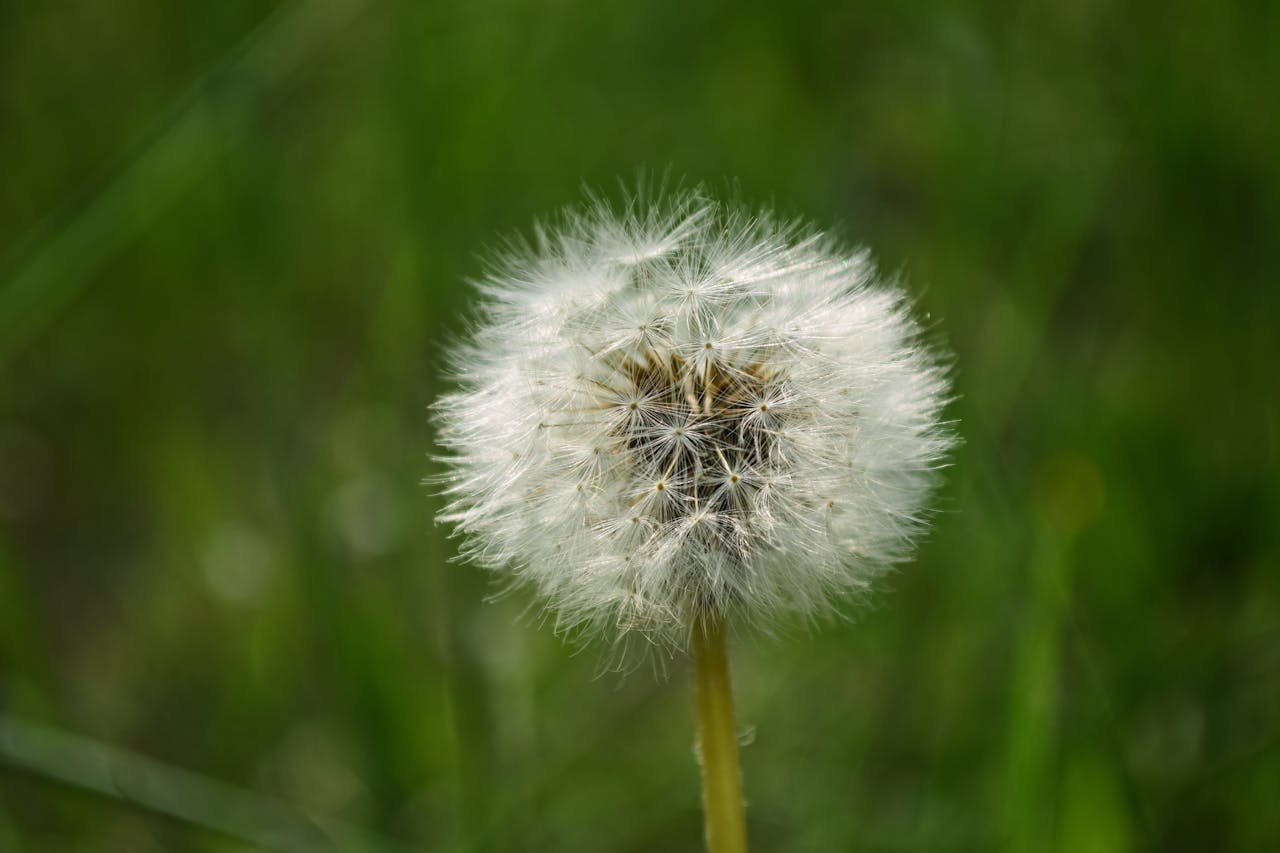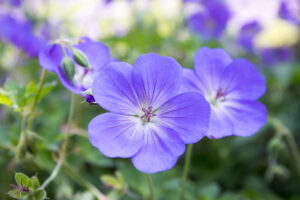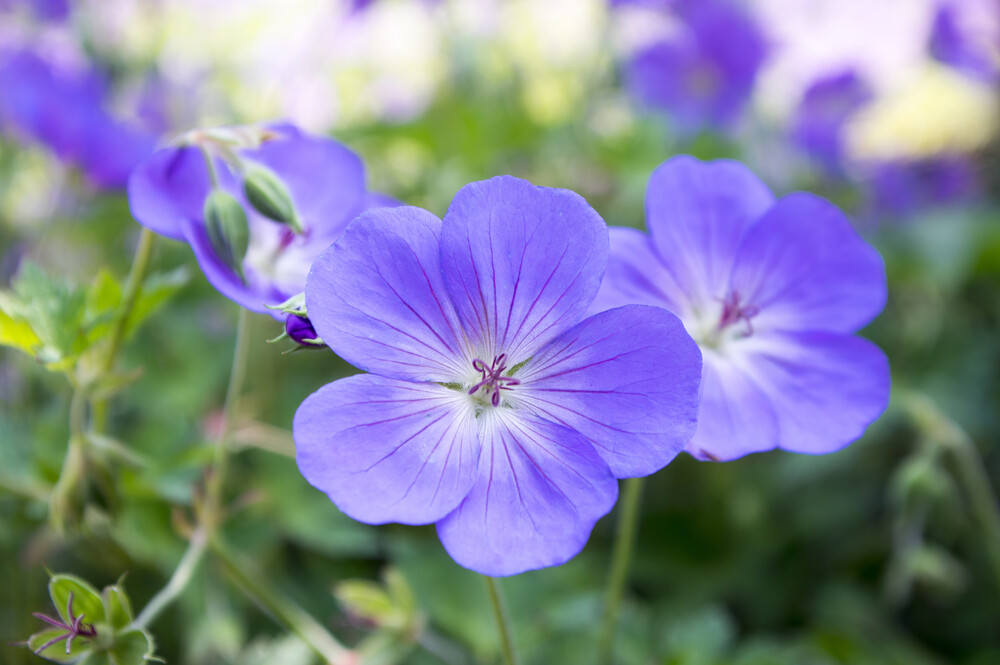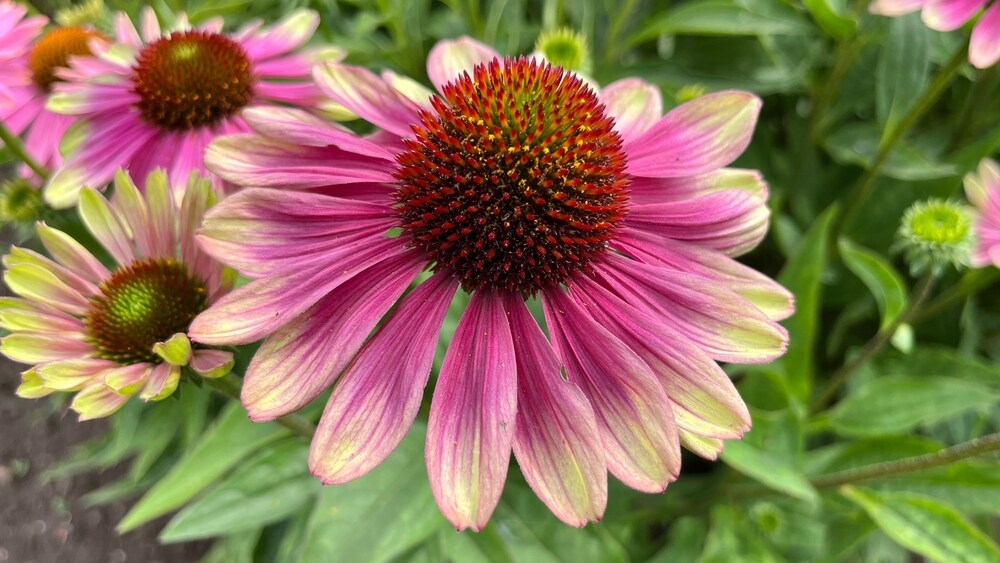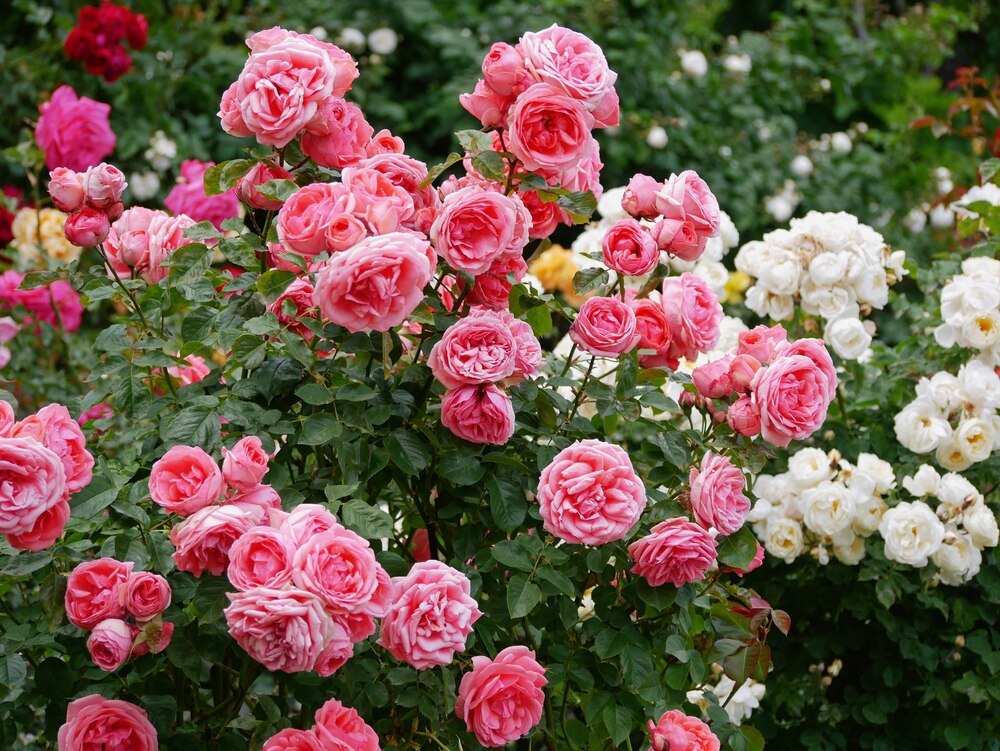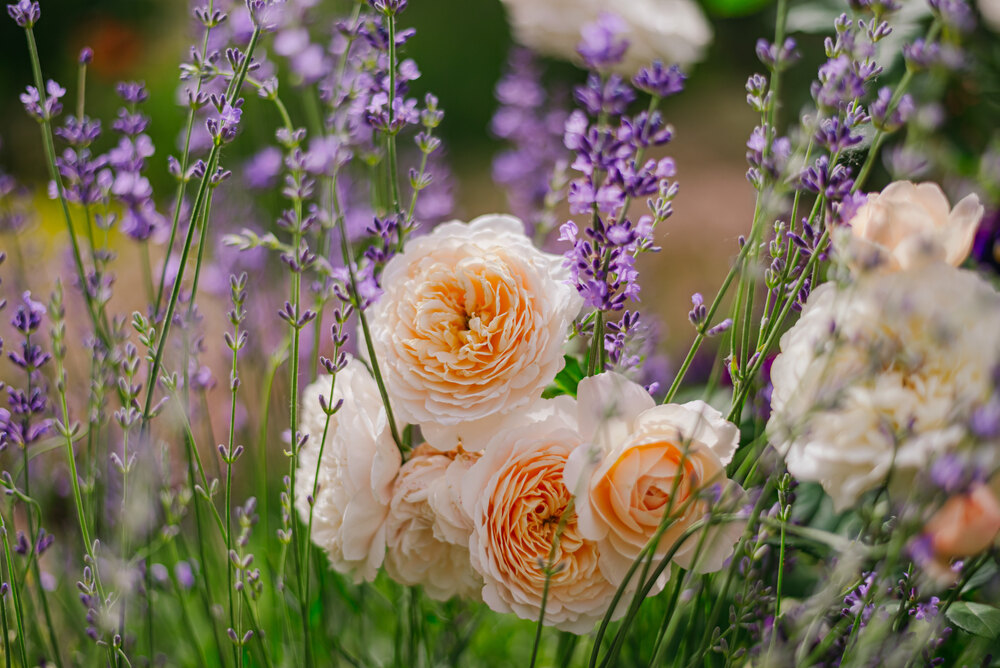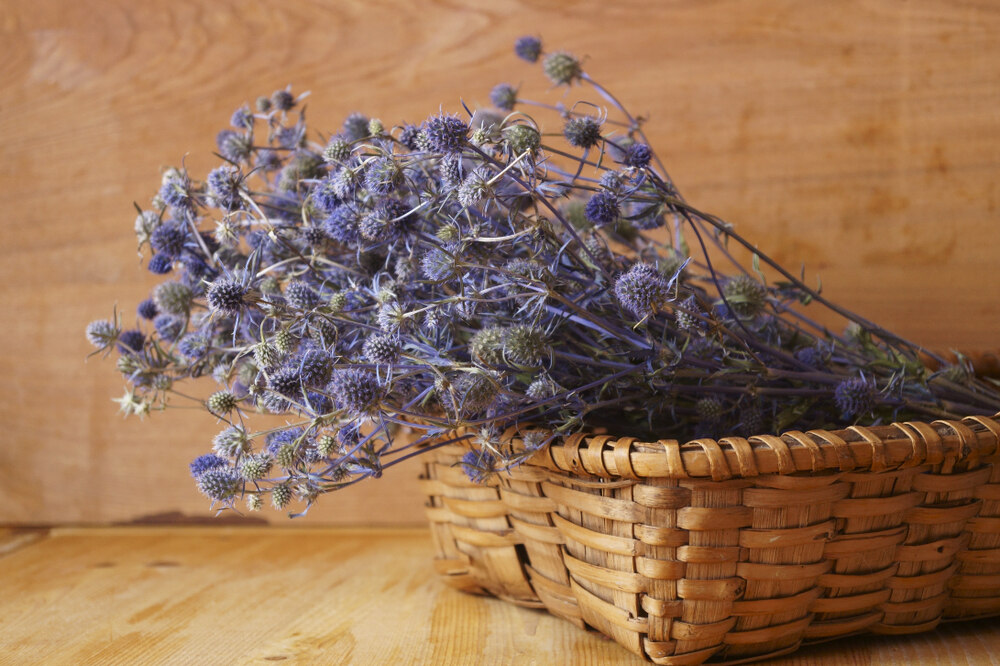In the world of gardening, few topics spark as much debate as the use of glyphosate. Known as the active ingredient in Roundup, glyphosate is the most widely used herbicide globally, popular for its effectiveness in controlling weeds in both agricultural and domestic settings. However, over the past decade, glyphosate has come under increased scrutiny due to concerns about its potential health and environmental impacts. As a result, gardeners in the UK are finding themselves at a crossroads: Should they continue using glyphosate for weed control, or seek alternative methods? In this blog post, we’ll explore the contentious issue of glyphosate use in gardening, examining both sides of the debate, the science behind it, alternative options, and how UK gardeners can navigate this complicated issue.
What is Glyphosate and Why is it So Popular?
Glyphosate is a broad-spectrum herbicide, which means it works by killing a wide variety of plants. It was introduced in the 1970s by the agricultural company Monsanto (now part of Bayer) and quickly became the go-to solution for controlling weeds. Glyphosate works by inhibiting a specific enzyme pathway (the shikimic acid pathway) that is essential for plant growth. Without this enzyme, the plant cannot produce proteins necessary for its survival, and it dies.
One of the key reasons for glyphosate’s popularity is its effectiveness in eliminating tough, perennial weeds like bindweed, nettles, brambles, and Japanese knotweed. In a single application, gardeners can tackle weeds that would otherwise require significant time and effort to remove manually. Additionally, glyphosate is non-selective, meaning it kills nearly all plants it comes into contact with, making it a powerful tool for clearing large areas of unwanted vegetation.
The Controversy: Health and Environmental Concerns
Despite its widespread use, glyphosate has become a flashpoint of controversy in recent years. The debate primarily revolves around two key areas: human health risks and environmental impacts.
1. Health Concerns
The most contentious issue surrounding glyphosate is its potential impact on human health. In 2015, the International Agency for Research on Cancer (IARC), a branch of the World Health Organization (WHO), classified glyphosate as “probably carcinogenic to humans.” This finding was based on studies that showed an association between glyphosate exposure and an increased risk of non-Hodgkin lymphoma, a type of cancer that affects the lymphatic system.
One of the most famous legal cases highlighting these concerns occurred in the United States in 2018, when a California jury awarded groundskeeper Dewayne Johnson $289 million (later reduced to $78 million) after ruling that glyphosate exposure was a substantial factor in his cancer diagnosis. The verdict opened the door to thousands of lawsuits against Bayer, leading to ongoing debate about glyphosate’s safety.
However, regulatory agencies in several countries, including the European Food Safety Authority (EFSA) and the US Environmental Protection Agency (EPA), have maintained that glyphosate is safe to use when applied according to label instructions. These agencies argue that there is insufficient evidence to conclusively link glyphosate to cancer in humans. They point out that studies showing a correlation between glyphosate and cancer typically involved high exposure levels in occupational settings, rather than the lower exposure levels typical for home gardeners.
This conflicting information has left many gardeners unsure about the risks associated with glyphosate use. While some are convinced by the IARC’s findings and have stopped using glyphosate altogether, others continue to use it, trusting the assurances of regulatory bodies that it is safe when used correctly.
2. Environmental Impact
The environmental impact of glyphosate is another area of concern. Glyphosate is a non-selective herbicide, meaning it kills all plants it comes into contact with. This can lead to the destruction of biodiversity in treated areas, particularly if it is used indiscriminately. For example, glyphosate can harm beneficial plants that provide food and habitat for pollinators like bees and butterflies.
In the UK, there has been particular concern about glyphosate’s role in the decline of wildflower meadows, which have already been significantly reduced over the past century. When applied in gardens or on farmland, glyphosate can eliminate the diverse plant life that supports these important habitats, further endangering species that rely on them.
Additionally, there is concern about glyphosate’s impact on soil health. Some studies suggest that repeated glyphosate use can disrupt soil microbial communities, potentially affecting soil fertility and long-term plant health. Glyphosate has also been detected in water bodies, raising concerns about its potential impact on aquatic life.
A 2017 study published in the journal Scientific Reports highlighted these environmental concerns. Researchers found that glyphosate residues in soil could harm earthworm populations, which play a crucial role in soil aeration and nutrient cycling. This raises questions about the long-term sustainability of relying on glyphosate for weed control, as its effects may extend far beyond the targeted weeds.
The environmental effects of glyphosate have led to calls for restrictions or outright bans in several countries. In the European Union, there has been ongoing debate about whether to renew the license for glyphosate use, with some countries like Germany moving towards a gradual phase-out. Meanwhile, other countries, such as Austria, have already implemented full bans on glyphosate use.
The Case for Glyphosate: Why Some Gardeners Still Use It
Despite the controversy, many gardeners continue to use glyphosate for its practical benefits. Here are some of the reasons why glyphosate remains a popular tool in gardening:
1. Effectiveness
Glyphosate is incredibly effective at controlling a wide range of weeds, including stubborn perennials that are difficult to eradicate manually. For gardeners dealing with invasive species like Japanese knotweed or brambles, glyphosate offers a reliable and efficient solution. Without it, these weeds could take over garden spaces and become nearly impossible to manage.
Japanese knotweed, in particular, has become notorious in the UK for its aggressive growth and the damage it can cause to buildings and infrastructure. Glyphosate is often seen as one of the few effective methods for controlling this invasive species, as other methods like cutting or digging often fail to completely eradicate it.
2. Ease of Use
One of the biggest advantages of glyphosate is its ease of use. It is widely available in garden centres, and applying it is straightforward: spray it on the weeds, and within days they begin to die off. This ease of use makes it appealing to gardeners who want quick results with minimal effort.
In large gardens or allotments, where manual weeding would be time-consuming and labour-intensive, glyphosate can save a significant amount of time and effort. It is particularly useful in situations where weeds have become deeply established, making other methods less effective.
3. Cost-Effective
Compared to other methods of weed control, such as hiring professionals to remove invasive species or using alternative organic herbicides, glyphosate is relatively inexpensive. For gardeners on a budget, it offers an affordable option for managing weeds on a larger scale.
Many gardeners also argue that the cost savings extend beyond the price of the product itself. By preventing the spread of invasive weeds, glyphosate can save money on future maintenance and repairs, particularly in cases where weeds threaten the structural integrity of buildings or hard landscaping.
The Case Against Glyphosate: Why Many Gardeners Are Moving Away From It
On the other hand, many UK gardeners are increasingly turning away from glyphosate in favour of more environmentally friendly methods. Here are some of the reasons behind this shift:
1. Health Risks
The potential link between glyphosate and cancer has been a major factor driving gardeners away from its use. Even though the evidence is inconclusive, many people prefer to err on the side of caution, especially when working in close contact with herbicides in their gardens. For those with young children or pets who spend time in the garden, the potential risks may seem too great to ignore.
Additionally, concerns have been raised about the presence of glyphosate residues in food and water. In 2018, a study by the Environmental Working Group (EWG) in the US found traces of glyphosate in a number of popular breakfast cereals. Although the levels detected were below regulatory limits, the findings sparked widespread concern about the potential for glyphosate to accumulate in the food chain.
For gardeners who grow their own food, the possibility of glyphosate contamination in homegrown fruits and vegetables is a major concern. Many are choosing to adopt organic gardening practices in order to reduce their exposure to synthetic chemicals like glyphosate.
2. Environmental Impact
As awareness of environmental issues grows, more gardeners are considering the impact their practices have on biodiversity and the ecosystem. Glyphosate’s non-selective nature means it can harm not just the weeds it is intended to kill but also beneficial plants, insects, and soil organisms. Many gardeners are now opting for methods that are more sustainable and have less impact on the surrounding environment.
In the UK, the decline of pollinator populations has been a major environmental concern. The widespread use of herbicides and pesticides is often cited as a contributing factor to this decline, as these chemicals can reduce the availability of nectar-rich plants and harm pollinators directly. By reducing or eliminating their use of glyphosate, gardeners can help create a more hospitable environment for bees, butterflies, and other beneficial insects.
3. Soil Health
Concerns about the long-term impact of glyphosate on soil health are another reason why some gardeners are seeking alternatives. Healthy soil is crucial for plant growth, and disrupting the delicate balance of soil microorganisms can have negative effects on garden fertility over time. By avoiding glyphosate, gardeners can promote healthier, more resilient soil ecosystems.
A growing number of UK gardeners are embracing regenerative gardening practices, which focus on building healthy soil and restoring biodiversity. These practices often involve reducing the use of synthetic chemicals and incorporating techniques like composting, mulching, and crop rotation to improve soil health naturally.
Alternatives to Glyphosate: Eco-Friendly Weed Control Methods
For gardeners who want to reduce or eliminate their use of glyphosate, there are several alternatives available. These methods may require more time and effort but can be just as effective when applied correctly. Here are some eco-friendly weed control options:
1. Manual Weed Removal
One of the simplest and most environmentally friendly ways to control weeds is through manual removal. This can be done by hand-pulling or using tools like hoes, trowels, or weeders. Although this method requires more effort, it is effective for removing weeds by the root, preventing regrowth.
For larger or more persistent weeds like brambles or bindweed, digging out the roots may be necessary. Regularly removing weeds before they set seed can help prevent them from spreading and becoming a larger problem.
2. Mulching
Mulching is an excellent method for suppressing weeds while also benefiting the soil. By covering the soil with a layer of organic material such as bark chips, straw, or compost, you can block sunlight from reaching weed seeds, preventing them from germinating.
Mulching also helps retain soil moisture and improve soil health as the organic material breaks down over time. This method is particularly effective in flower beds, borders, and vegetable gardens.
3. Natural Herbicides
Several natural herbicides are available for gardeners who want to avoid synthetic chemicals like glyphosate. These herbicides often use ingredients like vinegar, salt, or fatty acids to kill weeds. While they may not be as potent as glyphosate, they can be effective for controlling small to medium-sized weeds.
It’s important to note that natural herbicides are often non-selective, meaning they will kill any plant they come into contact with, just like glyphosate. Careful application is necessary to avoid harming desirable plants.
4. Solarisation
Solarisation is a method that uses the sun’s heat to kill weeds and their seeds. This is done by covering the soil with clear plastic sheeting and leaving it in place for several weeks during the hottest part of the year. The trapped heat kills weeds, seeds, and soil pathogens.
Solarisation is particularly effective for clearing large areas of weeds, such as vegetable beds or lawns, before planting. However, it requires patience, as the process can take several weeks to complete.
5. Crop Rotation and Cover Crops
For vegetable gardeners, crop rotation and the use of cover crops can be an effective way to manage weeds without relying on herbicides. Rotating crops helps disrupt the life cycle of weeds and pests, while cover crops can suppress weed growth by outcompeting them for light and nutrients.
Leguminous cover crops like clover or vetch can also improve soil health by fixing nitrogen, providing a dual benefit for the garden.
The Future of Glyphosate in the UK
The future of glyphosate use in the UK remains uncertain. While it is still widely available for both agricultural and domestic use, there is growing pressure to regulate or ban its use altogether. Several countries, including Germany, have announced plans to phase out glyphosate, and similar discussions are taking place in the UK.
The UK government has indicated that it is considering restrictions on glyphosate as part of its broader environmental agenda. This includes reducing the use of pesticides and herbicides that are harmful to biodiversity and human health. As the debate continues, gardeners may find themselves facing new regulations or even a ban on glyphosate in the coming years.
Case Studies: UK Gardeners Making the Transition Away from Glyphosate
Many UK gardeners have already begun transitioning away from glyphosate, adopting more sustainable practices. Here are a few examples:
Case Study 1: The Organic Allotment in Bristol
Sarah, an organic allotment holder in Bristol, made the switch to glyphosate-free gardening five years ago. After hearing about the potential health risks associated with glyphosate, she decided to adopt organic practices on her plot. She now uses a combination of manual weeding, mulching, and crop rotation to manage weeds.
“Initially, it was challenging to control the perennial weeds without glyphosate,” Sarah admits. “But over time, I found that improving my soil health and being consistent with my weeding helped keep the weeds in check.”
Sarah’s allotment is now thriving, with a diverse range of fruits, vegetables, and flowers. She credits her success to the focus on building healthy soil, which has improved plant growth and resilience.
Case Study 2: The Community Garden in Manchester
The Manchester Community Garden made the decision to go glyphosate-free after a vote by its members. The garden, which is maintained by volunteers, had previously used glyphosate to control weeds along paths and in communal growing areas.
“We wanted to create a space that was safe for everyone, including the wildlife that visits our garden,” says Peter, one of the garden’s coordinators. “It took a bit of trial and error to find the right combination of methods, but now we use mulching and manual weeding as our primary methods.”
The garden also uses natural herbicides made from vinegar and soap for spot treatments. Peter says the transition has been a learning process but ultimately rewarding. “Our garden feels more alive now, with more insects and birds. It’s been worth the extra effort.”
Navigating the Glyphosate Debate as a Gardener
The debate over glyphosate is unlikely to be resolved any time soon. On one hand, it remains an effective and affordable solution for controlling weeds, particularly invasive species that are difficult to manage manually. On the other hand, the potential health risks and environmental impacts have led many gardeners to seek alternatives.
As a gardener, the decision to use or avoid glyphosate ultimately comes down to your personal values and priorities. If you are concerned about the environmental and health risks associated with glyphosate, there are plenty of eco-friendly alternatives that can help you manage weeds in a more sustainable way. These methods may require more effort, but they can also lead to a healthier garden in the long run.
For those who continue to use glyphosate, it’s important to do so responsibly. This means following label instructions carefully, avoiding overuse, and being mindful of the impact on non-target plants and wildlife.
Whether you choose to use glyphosate or go peat-free, the most important thing is to stay informed and make decisions that align with your gardening goals and the health of your garden ecosystem.
